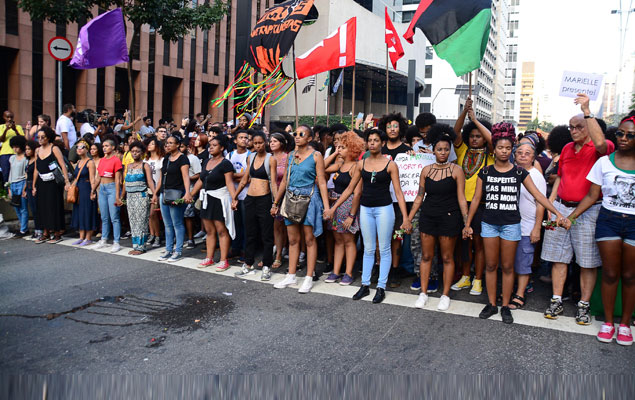Latest Photo Galleries
Brazilian Markets
12h03 Bovespa |
-0,14% | 129.028 |
16h43 Gold |
0,00% | 117 |
12h17 Dollar |
+0,39% | 5,0873 |
16h30 Euro |
+0,49% | 2,65250 |
ADVERTISING
Brazil among the Four Global Leaders in Assassinated Activists
03/19/2018 - 11h07
Advertising
FERNANDA MENA
FROM SÃO PAULO
Brazil is one of the most dangerous countries in the world for those who defend human rights, the main political area of city councilor Marielle Franco (PSOL), whose murder on Wednesday, March 14, made many people take to the streets in demonstrations.
2017 reports of International Amnesty, the Inter-American Commission of Human Rights and NGO Front Line, which monitors human rights on the entire planet, ranked Brazil among the four global leaders in assassinated activists, next to Colombia, the Philippines and Mexico.
The Inter-American Commission, connected to the Organization of American States (OAS), says that three in every four assassinations of human rights defenders in the world occurred in Latin America in 2016, concentrated in Brazil and Colombia.
| Ronaldo Silva/Futura Press/Folhapress | ||
 |
||
| Brazil protests over slain politician Marielle Franco |
"There is a clear increase in violence against those who fight for rights in their countries, although these cases are underreported," says lawyer Layza Queiróz Santos, a member of the committee.
"Marielle Franco's case is a symbol because she was a woman growing in the political arena who had much visibility, which should have protected her," says Santos.
Most of the human rights defenders killed in the country acted in conflicts in rural areas, connected to the right to land and protection of the environment.
Marielle's execution, however, portrays a recent phenomenon - urban assassinations - which has grown across Latin America: the murder of activists connected to the issues of exclusion and discrimination.
Translated by THOMAS MUELLO



